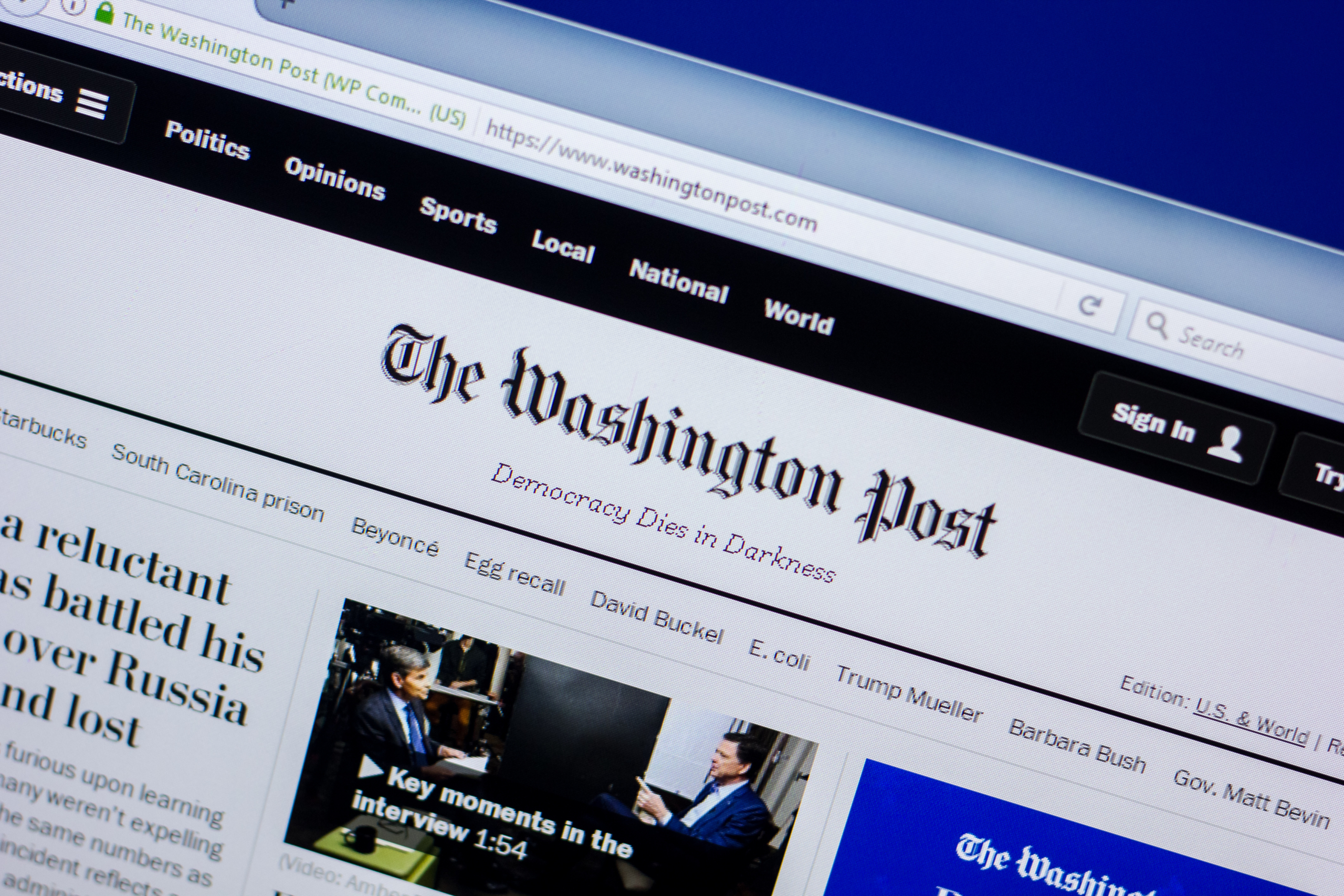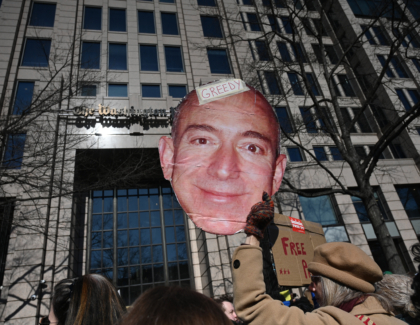Sign up for the daily CJR newsletter.
Four months after Marty Baron announced his retirement as top editor of the Washington Post, the paper has announced that Sally Buzbee, former executive editor of the AP, will succeed him, becoming the Post’s first female executive editor. The good news is that the newsroom largely seems to find Buzbee a promising choice. The bad news is that the paper’s hiring process could not escape some of the same tensions that have bedeviled the paper for the past year.
The Post did a fantastic job of keeping the news from leaking. Several names for possible candidates for the position have churned through the gossip mill in recent weeks, but Buzbee’s was not one of them. She is a thoroughly, almost aggressively, sober choice, having spent her entire career at the AP, the most sober of all journalism organizations. She climbed the ranks there, from reporter to editor to bureau chief and management positions. Her resume ticks every box on the Large Journalism Institution Leadership checklist. And her age, 55, means that, with luck, she will be able to stay in the job for a decade or more, in order to spare the Post’s management from having to go through all of this again any time soon.
She is not in any sense a flashy pick—something no one in the newsroom was necessarily craving. “I’m happy they didn’t go with the monorail salesman from the Simpsons episode,” one reporter told me archly.
As soon as the news broke on Tuesday, the backchanneling began between Post reporters and anyone they knew at the AP, seeking instant assessments of Buzbee. The replies, by all accounts, were just fine. One member of the Post’s newsroom said the reports from their AP counterparts were “across-the-board positive”; another said, “We are all hearing good things. Vibe is tempered but very sincere optimism and enthusiasm.” Others expressed relief—and even a small amount of surprise—that Jeff Bezos, the most high-profile of all newspaper owners, had selected someone with such a serious background in traditional journalism, without giving into the temptation to reach a bit farther into the tech world for some dreaded Forward-Thinking Media Guru.
Amid the general sense of relief-tinged approval, though, runs unease. Some Post staffers were upset that Kevin Merida, a Black former Post editor who was recently named the top editor at the Los Angeles Times, did not figure more prominently in the Post’s search. Wesley Lowery, a reporter who left the Post last year after disputes with Baron over whether talking about racism on social media was antithetical to the standards of journalism, tweeted, “The overqualified black candidate not even getting a serious call about the job, only for it to go to a white lady and be framed as a win for diversity is the entire story of newsroom diversity efforts.” (Lowery later deleted the tweet.) More broadly, the newsroom was irked that the hiring process was so lacking in transparency, and was completely controlled, by all appearances, by CEO and publisher Fred Ryan. (Post spokesperson Kristine Coratti Kelly refused to comment on who was involved in the search.)
Newsroom employees told me it was “very disappointing” that they were not at all involved, or even consulted. This is a particular concern given the prickly and sometimes heated relationship between the Post’s leadership and its staff over the past year, particularly over issues of diversity and institutional support for all employees. And Ryan can’t say the snub was unintentional. In March, when the editor search was still in its early stages, the newsroom’s union, the Washington Post Guild, sent a formal request to Ryan asking that “you and Post owner Jeff Bezos will solicit and seriously consider opinions from employees throughout the company on the qualities and vision our next executive editor should bring to the job,” and that a dedicated forum be held to allow the newsroom to give input on what the paper should look for. That letter was signed by close to 200 Post employees.
Ryan’s response was a perfunctory, three-sentence email saying that due to the “confidential and sensitive nature of the executive editor search… we do not plan to broadly address the search process with employees.”
Ryan’s dismissal of his staff’s rather mild request to simply give their thoughts on what qualities their next boss should have helped prevent any news about the editor search from leaking. But it does not exactly soothe your beleaguered (and a little pissed off) employees who have, like all of us, had a rough year. Sally Buzbee’s personal reputation, earned over decades, enables her to start off with a fair amount of goodwill from the newsroom. Here’s hoping her new bosses don’t screw that up.
Has America ever needed a media defender more than now? Help us by joining CJR today.







